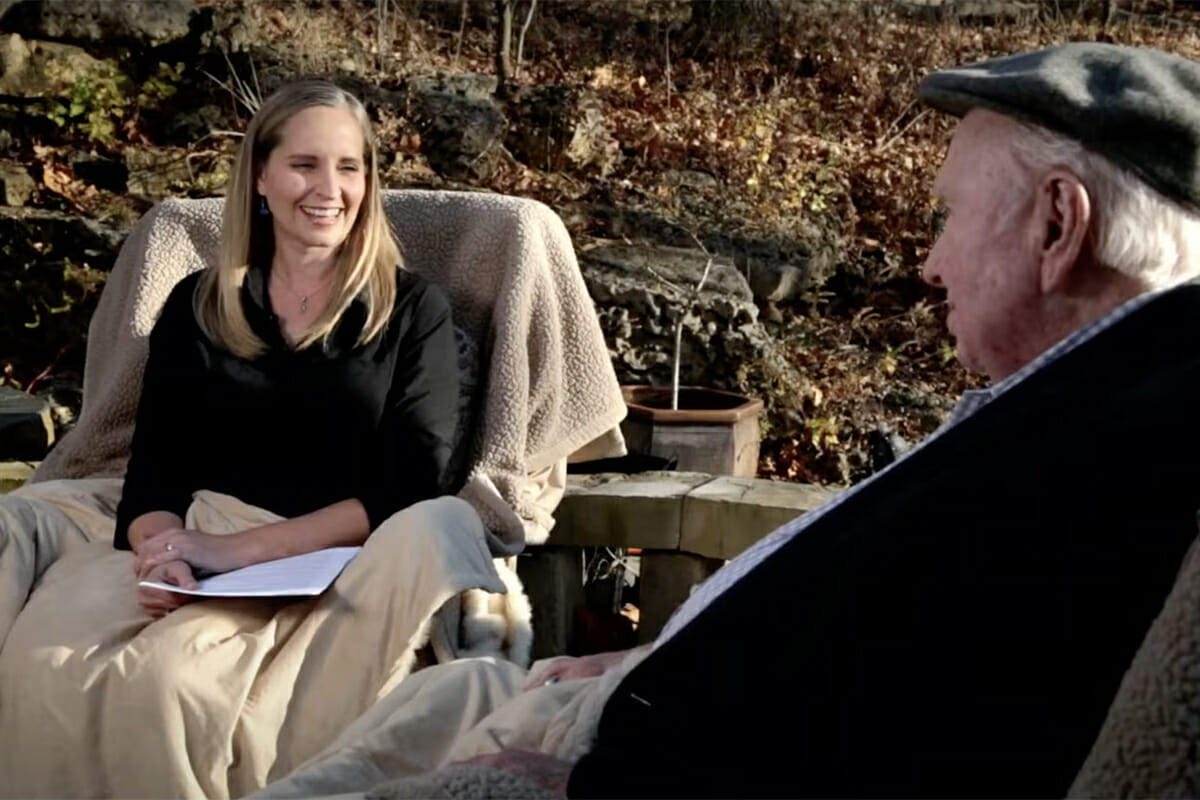The two scientists were deep in conversation about climate change, conservation and sustainability of planet earth, topics that fill their lives each day. They meet every few months for dinner, and to discuss how to help Mother Earth. One of those conversations was recently featured during Pivot, a TEDx St. Louis virtual event.
The scientists — Kyra Krakos, PhD, associate professor of biology and program director for Maryville’s online Bachelor of Science in sustainability, and Peter Raven, PhD, world-renowned American botanist, and now president emeritus of the Missouri Botanical Garden after serving nearly 40 years — are longtime friends.
“We always dine on Peter’s back porch,” Krakos said. “Peter was my adviser in graduate school and over the years has continued to be my mentor and friend.”
TEDx St. Louis features talks by outstanding thought leaders on topics connected to the region. When Krakos and Raven were invited to participate in the December 8 event, Krakos said they decided their presentation would “turn the camera on ourselves and provide highlights of our conversations.”
The two scientists sat on Raven’s deck in the wooded backyard, wrapped in blankets, and 2,000 people tuned into the TEDx St. Louis event remotely. Titled “Pivot,” the event’s six speakers gave fresh perspectives on the current state of our world.
Raven, the recipient of multiple prizes including the National Medal of Science and MacArthur and Guggenheim Fellowships, has published nearly 800 papers and some 20 books on our environment. He offered his audience a brief history on how the earth has seemingly deteriorated overnight.
“We had no idea of conservation in the 1920s, 30s, 40s, even the 50s,” he reminded them. “It wasn’t until the end of the disruptive 60s that humans began destroying the world. The number of people in the world quadrupled in the 20th century. The sheer numbers of us on the planet now are destroying our entire ecosystem at a rate we have never seen.”
The author of “The Biology of Plants,” the best selling botany textbook for 50 years, paused to let it sink in for the audience.
“We depend on plants for our existence,” he continued. “Since all of our food comes from plants, we are creating a modern dystopian world.”
Despite the dire predictions, these scientists refer to themselves as optimists and remain hopeful.
“But there is no reason to remain hopeful at all if you’re not willing to do something about it,” Raven said.
Krakos can rattle off plenty to be hopeful about. “We have accumulated serious data on Conservation, Sustainability and Climate Change, said Krakos after the TEDx St. Louis event. “We have also seen success in addressing these serious issues, when we put our minds to it. And that gives us hope. We are both very positive people and believe in a sustainable world. But social justice must be supported; we cannot live selfishly.”
Following her own advice, Krakos spent the last year developing Maryville’s innovative online bachelor’s in sustainability program. Launched this past fall, the program features three different tracks — science, government and business — and covers areas such as conservation, ecology, economics, social and cultural issues, urban planning, environmental law and sustainable agriculture.
“We are a remarkable species; we innovate,” Krakos said. “People don’t easily change their patterns, they need to be inspired to love something bigger, they want to see results. When electric cars were introduced, two things happened. Lots of people bought electric cars and our air got cleaner! Nobody buys a Tesla to save the planet!
“A pandemic envelops the world,” she continues. “We develop a vaccine. Zoom took less than a year to develop. Now we can have meetings with people all over the world. ”
Maryville quickly filled six sections for this innovative, all online program. The program notes point to a possible improved future: “Sustainable practices can lead to a cleaner environment, a healthier population, lower operational costs, higher profits and increased political and social goodwill.”
“What does the future hold for a sustainable world?” Krakos asks. “I believe humanity is capable of creating that world. We can be a force for good. We’ve done it before and we can do it again.”
